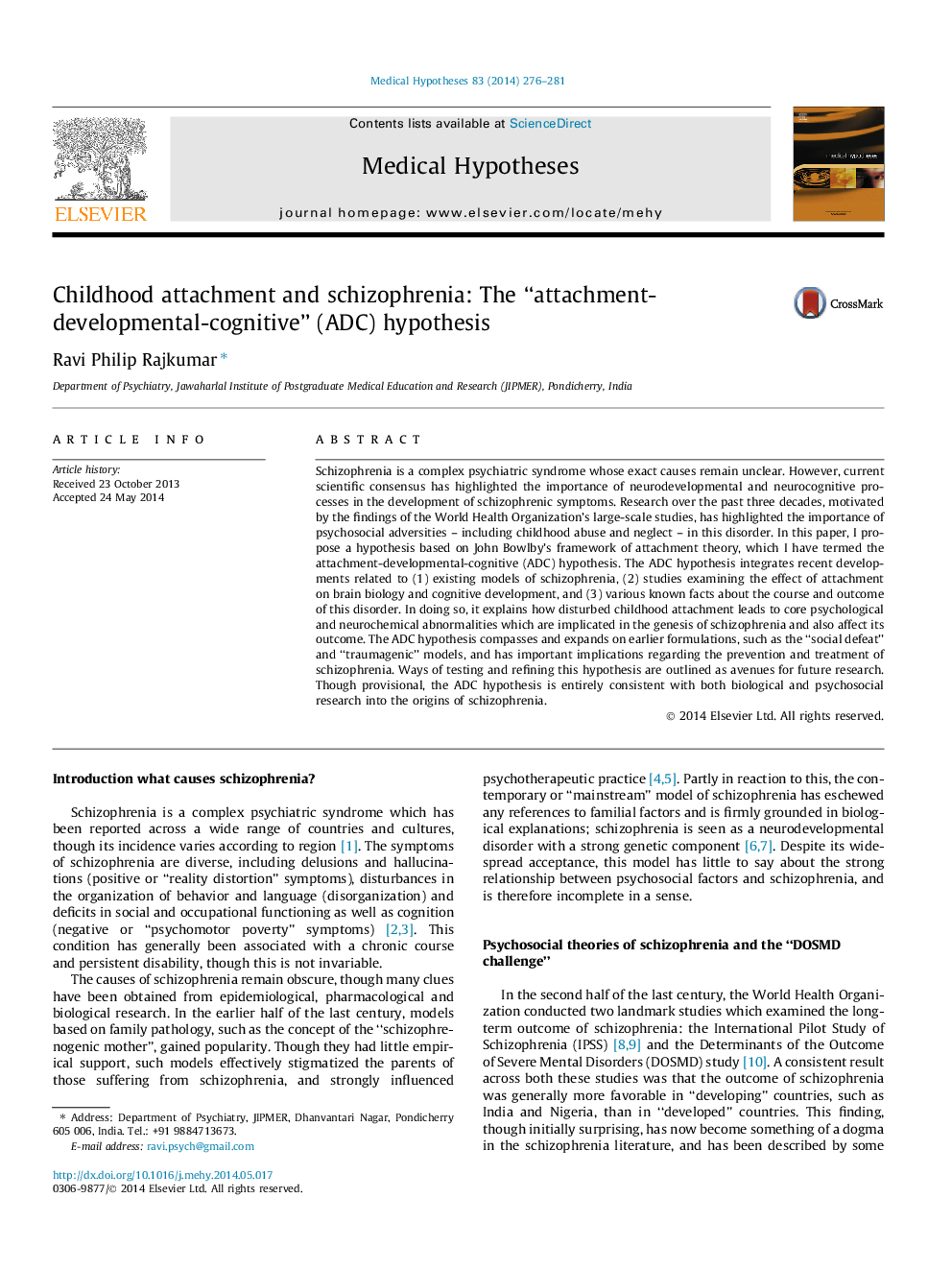| Article ID | Journal | Published Year | Pages | File Type |
|---|---|---|---|---|
| 5811663 | Medical Hypotheses | 2014 | 6 Pages |
Schizophrenia is a complex psychiatric syndrome whose exact causes remain unclear. However, current scientific consensus has highlighted the importance of neurodevelopmental and neurocognitive processes in the development of schizophrenic symptoms. Research over the past three decades, motivated by the findings of the World Health Organization's large-scale studies, has highlighted the importance of psychosocial adversities - including childhood abuse and neglect - in this disorder. In this paper, I propose a hypothesis based on John Bowlby's framework of attachment theory, which I have termed the attachment-developmental-cognitive (ADC) hypothesis. The ADC hypothesis integrates recent developments related to (1) existing models of schizophrenia, (2) studies examining the effect of attachment on brain biology and cognitive development, and (3) various known facts about the course and outcome of this disorder. In doing so, it explains how disturbed childhood attachment leads to core psychological and neurochemical abnormalities which are implicated in the genesis of schizophrenia and also affect its outcome. The ADC hypothesis compasses and expands on earlier formulations, such as the “social defeat” and “traumagenic” models, and has important implications regarding the prevention and treatment of schizophrenia. Ways of testing and refining this hypothesis are outlined as avenues for future research. Though provisional, the ADC hypothesis is entirely consistent with both biological and psychosocial research into the origins of schizophrenia.
